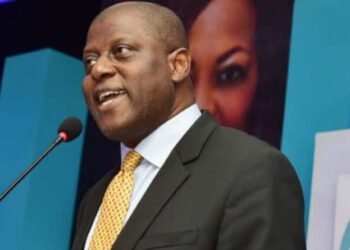A review of the Central Bank of Nigeria’s (CBN) data suggests Nigeria’s educational sector has suffered massive capital flight in the last 10 years.
Specifically, using the CBN’s balance of payment statistics, Nigerians have spent a hefty sum of $28.65 billion on foreign education in the past 10 years (2010 to 2020).
The exchange rate has become the focal point for the economy considering the direct impact it has on the cost of goods and services. It is also the major reason why there are multiple exchange rates and a widening disparity between the parallel market rate and the official rates.
For most analysts, this is also the basis for some of the harshest regulatory onslaughts currently being witnessed by Startups particularly in the FinTech space in the country. In the first part of our Balance of Payment Review series, Nairametrics takes a critical look at expense items that demand the most forex from Nigeria. We believe highlighting our forex demand drivers can perhaps help better understand how we can collectively proffer solutions.
Nigeria’s thirst for foreign education
According to the World Bank, human capital development is integral to any country’s sustainable development and poverty reduction goals. Critically, education and knowledge capacity building are critical drivers of human capital development.
Thus, investment in education is one of the bedrock of society and helps determine the level of development recorded in an economy. The value of education in an economy cannot be overemphasized, as it helps shape both individuals and the broader society, and forms a huge source of economic value.
For Nigeria, data shows that whilst Nigeria(ns) have remitted over $28 billion to foreign academic institutions, there does not appear to be significant reciprocation in form of inflows from foreign sources towards Nigeria’s education sector.
This situation of huge NET dollar outflows towards foreign academic institutions without any reciprocity has dual adverse effects of resulting in underinvestment in Nigeria’s domestic educational sector whilst simultaneously creating pressure on the Naira exchange rate.
Needless to say, that the high demand for dollars to pay these foreign educational institutions has affected the country’s foreign reserve (which currently stands at $33.39 billion), and contributed immensely to piling pressure on the exchange rate.

An underfunded and under-invested education sector
According to data from Webometrics, the highest ranked Nigerian university is the University of Ibadan with a rank of 1,196 followed by Covenant University with a rank of 1,314.
In other words, no Nigerian university is ranked within the top 10% of universities globally. This may not be entirely surprising given that the funding of education at all levels is below the recommended benchmark by the United Nations Educational Scientific and Cultural Organization (UNESCO).
Specifically, UNESCO’s benchmark for funding education is 26% of the national budget and 6% of the gross domestic product (GDP).
Nigeria’s budget for the education sector has averaged around 8.3% of the budget which is in sharp contrast to the recommended target and continues to drop. From a GDP perspective, the figure paints an even more dismal picture, as the education sector accounted for 1.94% of the real GDP in Q1 2021 and 1.86% in 2020.
According to data from UNESCO, about 76,338 Nigerians were studying abroad as of 2018, which is the highest recorded by an African country.
What do the youth feel about the situation?
A random survey of Nigerian youths revealed various reasons why the youthful population pursue academic qualifications outside the shores of the country.
In an interview with Miss Ejiro Ovuakporaye, a marketer at a notable Fintech company in Nigeria, she expressed her great desire to further her studies outside the country. According to her, foreign certification is more appreciated in Nigeria compared to locally acquired degrees and this has propelled many Nigerians to embark on foreign academic pursuits. Also, she commented on the ease of lectures, modern curriculum and stability in the academic calendar.
“In Nigeria, we spend about 6 years for a 4-year course, due to strike actions,” she lamented.
In the same vein, Miss Morenikeji Alabi, an investment trader said she would prefer to study in any other country apart from Nigeria, due to inadequate structure and lack of practical research facilities bedevilling the educational sector in Nigeria. Miss Morenike, who is a Statistician by discipline feels the Nigerian educational sector lacks the level of practicability and competitiveness to attract foreign students into the country.
It is worth noting that most of the universities overseas have a number of their programmes done online, which caters for students not domiciled in the country. The same cannot be said about most universities in Nigeria.
Bottom line
Simply put, Nigeria’s persistent level of underinvestment compared to global standards does not bode well for any effort towards improving the nation’s human capital index, nor will it address the seemingly insatiable demands for foreign education.
The Nigerian education sector requires adequate funding as well as the willingness to build competitive value amongst its peers.


















